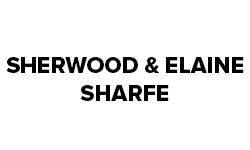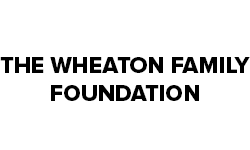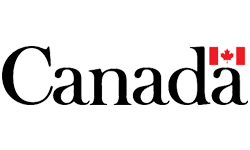GRADE 6 CITIZENSHIP STUDIES LIFELONG LEARNING CITIZENS
Part A: Curricular Connections and Background
BROAD AREA OF CITIZENSHIP
DESIRED RESULTS OF CITIZENSHIP STUDY
- Different types of government locally, nationally and globally.
- Understand the elements of Canadian citizenship including rights and responsibilities.
- Historical and current events – locally, nationally and globally that impact issues.
Grade Six students have been investigating and understanding forms of power and governance within their own country beginning at the local level and moving to the national level. Students are developing an understanding of the structures and power relationships that govern Canada and will begin to compare and contrast those structures and processes within countries bordering the Atlantic Ocean.
Students will explore issues comparing Canadian context to those in countries bordering the Atlantic. Knowledge of the geographic features, specific resources, population clusters and economic relationships will help students to draw their own understandings about possible causes and solutions to issues studied and appreciate the diversity among countries and cultures.
Students will begin to develop opinions regarding the distribution of power and privilege at a national and global level and reflect on their role and responsibility as a Canadian citizen. This area of citizenship focuses on the student using critical thinking skills in order to better understand, the relationship between geography, resources, culture and historical events.
ENDURING UNDERSTANDINGS OF CITIZENSHIP STUDY
Students will use the information to:
- History and current events are understood through diverse historical perspectives.
- Democracy requires discussion and consideration of alternate points of view in order to find a balance between individual perspectives.
- Citizens value the needs of the collective common good and consider how their actions impact the collective well-being.
- Canadian multi-cultural policies challenge citizenship tenets and require consideration of multiple perspectives.
- Canada’s history includes First Nations, Métis, and Inuit governance and perspectives and each have contributed to Canadian identity.
- Decision-making is a complex process with far-reaching impacts.
- Engaged citizens strive to be knowledgeable, uphold their rights, and act on their responsibilities.
- Enduring understandings are the big ideas that stimulate thinking, guide the inquiry and are linked to outcomes.
- Essential questions point to the “big ideas” in the inquiry and should be considered and reconsidered as the inquiry progresses.
- Answers to these questions form the evidence of learning at the end of study.
KNOWLEDGE AND SKILL DEVELOPMENT
- Understand the democratic process within our government.
- Examine their own, place and responsibility in the democratic process.
- Appreciate the importance of and develop skills for advocacy
ESSENTIAL QUESTIONS
- How do you determine fairness?
- If opinion is a reflection of personal perspective, is everyone’s opinion, right?
- What is the impact of past experience on decision-making?
- What do you need to consider when you choose to influence others?
- Why does new learning matter?
- How does the impact of the natural environment affect the development of society?
- What is the impact of affirming a multicultural society?
CURRICULUM OUTCOMES AND INDICATORS
Student friendly outcomes should be posted throughout the inquiry and continually referenced so the goals of the learning are clearly available to students.
Sask. Curriculum Outcomes/Student Friendly Outcomes
RW 6.1
Examine and analyze factors that contribute to quality of life, including material and non-material factors. / What are the material and non-material factors we require to sustain our quality of life?
Indicators:
- Explain the difference between needs and wants.
- Compare and contrast the needs and wants of Canadian youth with those of youth in other countries.
- Recognize the variation in value placed on quality of life indicators in varying locations, cultures, and time periods.
- Investigate the indigenous concept of abundance as it relates to the western concept of wealth.
- Explain factors that affect the quality of life of youth in Canada and a selection of countries bordering the Atlantic Ocean (e.g., labour practices, access to education and technology, shelter, food and water, health care, sport and recreation, inclusion, or marginalization).
- Assess ways in which technology influences the quality of life for youth in Canada and in a selection of countries bordering the Atlantic Ocean (e.g., access to energy, transportation, and communication systems).
- Compare and contrast the quality of life in Canada with the quality of life in a selection of countries bordering the Atlantic Ocean using various sources of data including a quality of life index, maps, graphs, and charts.
- Propose reasons which might explain the differences in the quality of life of young people in Canada and in a selection of countries bordering the Atlantic Ocean.
- Research sources of wealth (including natural resources and industries) in Canada and a selection of countries bordering the Atlantic Ocean.
- Recognize and assess the relationship between wealth and resources and the distribution of power and authority in Canada and a selection of countries bordering the Atlantic Ocean.
RW 6.2
Contribute to initiating and guiding change in local and global communities regarding environmental, social, and economic sustainability.
Indicators:
- Represent through visual art, music, dance, writing, or other representation the contribution of individuals and communities to initiate change that supports sustainability.
- Investigate how individual local consumer choices may affect people elsewhere in the world (e.g., child labour, enslavement, sweat shops, consumption of scarce resources, prosperity through employment).
- Develop an action plan for harmonizing one’s personal lifestyle with collective needs regarding social, environmental, and economic sustainability.
PA 6.3
Explore examples and explain how people, such as ethnic minority groups, the disabled, youth, and the elderly, may be affected by injustice or abuses of power./ Students will understand how people are affected by injustices or abuses of power.
Indicators:
- Describe incidents of the misuse of power in groups of which students are aware.
- Research laws that specifically affect young people, minority groups, the disabled, and the elderly to determine the disposition of governments toward the status of these groups, and evaluate the reasons for and effectiveness of such laws.
- Propose changes needed in human behaviour and institutions in order to prevent the abuse of power.
- Investigate the relationship between people and their governments in Canada and a selection of countries bordering the Atlantic Ocean. Include such things as human rights, treatment of minorities, history with indigenous peoples, infrastructure for health, and education (including reference to residential schools and the intergenerational impact of those experiences).
DR 6.3
Appraise the strategies human societies have used to orient themselves within time and place in the natural environment.
Indicators:
- Investigate the role of astronomy and traditional practices and teachings in early map making and reading.
- Use parallels of latitude and meridians of longitude to situate locations on a map.
- Calculate the time in different time zones relevant to Canada and a selection of countries bordering the Atlantic Ocean, using technological tools and appropriate vocabulary, including international date line, Universal Time, local time, and daylight saving time.
- Investigate the Indigenous understanding of day, night, and seasons as part of global cycles.
- Describe and compare diverse approaches to natural resource and land use among First Nations and Métis peoples in Canada, among indigenous and non-indigenous peoples of these regions, and explore how these diverse approaches have come into conflict and been in harmony in various time periods and locations.
© 2024 Concentus Citizenship Education Foundation Inc. All Rights Reserved.









